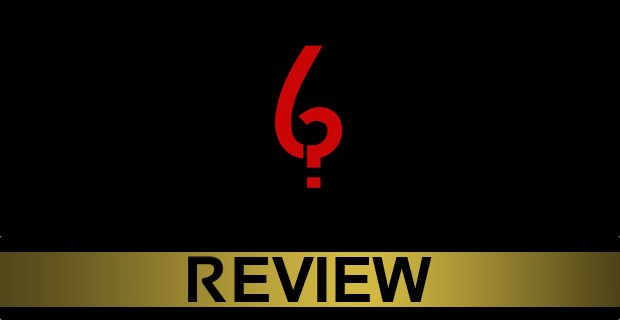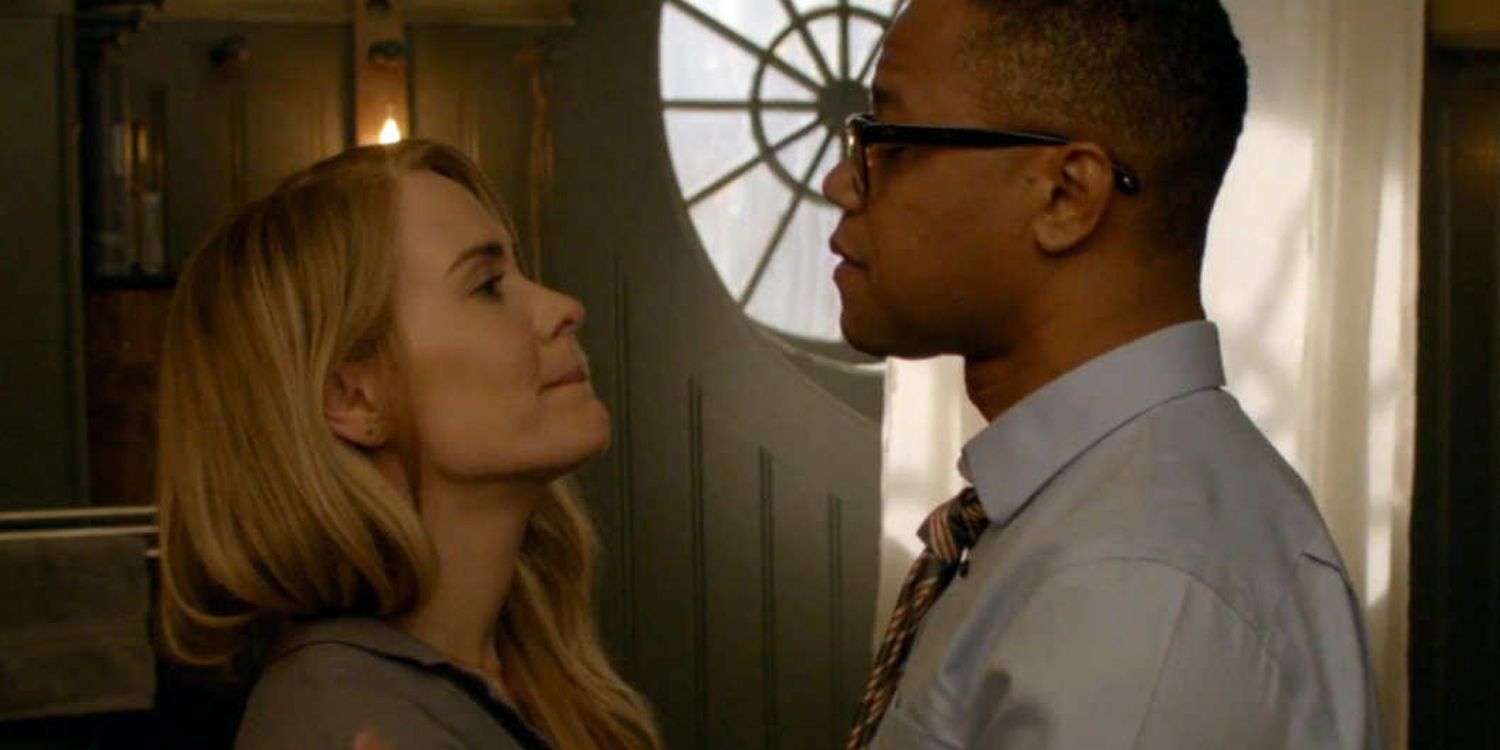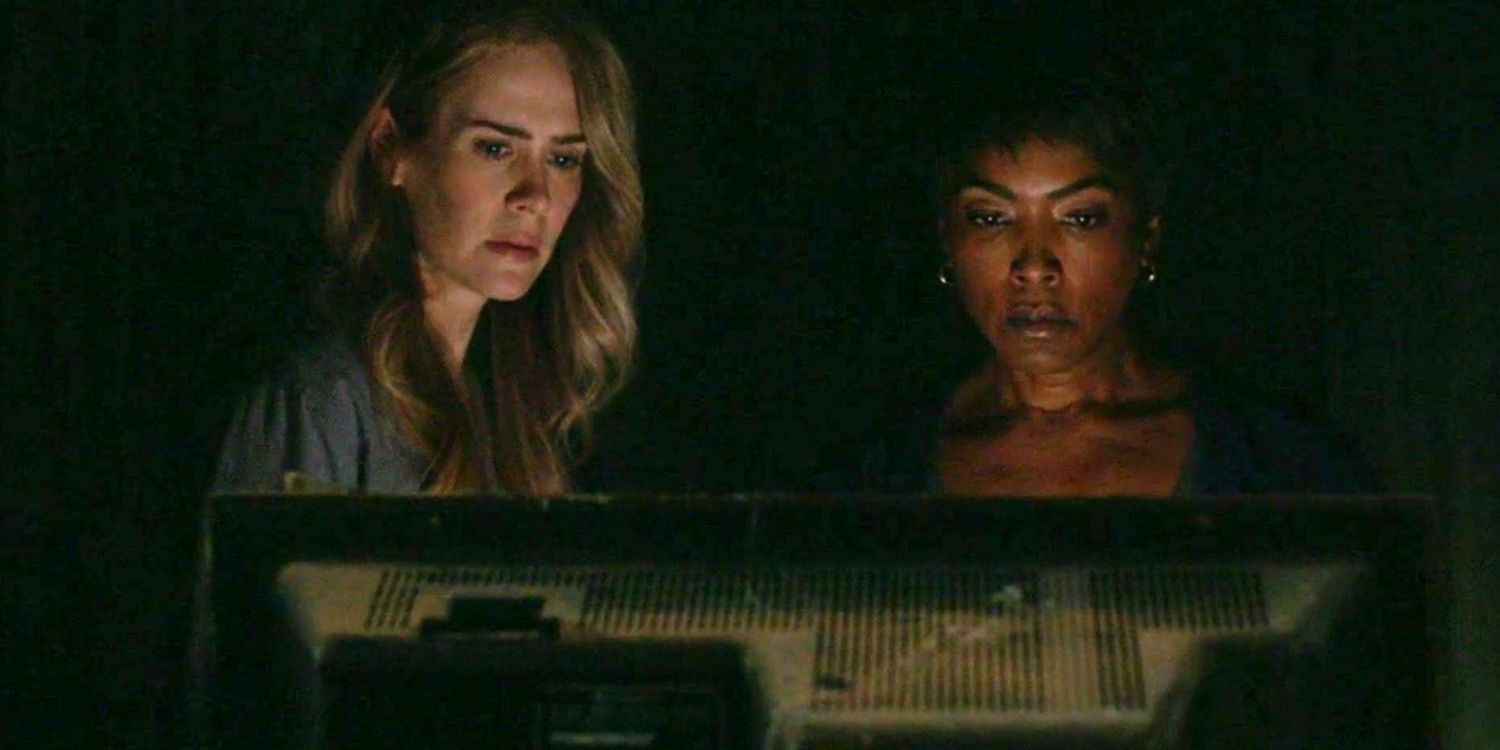[This is a review for the season 6 premiere of American Horror Story. There will be SPOILERS.]
-
Somewhere between spectacle and genuine audience interest sits American Horror Story season 6. The show took a break from announcing its theme early and then leaving the marketing to handle the task of making up a bunch of creepy ads loosely affiliated with the season's premise and/or setting. It's a genius ploy, really. Instead of filling commercials and posters with situations and characters that would never find there way into the season's actual story line, the series simply announced that the ads for season 6 had nothing to do (for the most part) with the show's narrative from the get go. The move was a clever gambit that built interest in the season by obscuring its intentions and therefore preventing would-be viewers from signing off early because they weren't interested in the theme.
After Hotel felt mostly like the same pastiche of past horror films and movie tropes as Asylum, Coven, and Freak Show did, it's easy to see why heading audiences off at the pass, all while enticing them with a hint of mystery, was likely the right way to go. Denying even the most casual viewer information on what the upcoming season is going to be about is a surefire way to get them to tune in – even if it's just for the sake of finding out what the theme is going to be. So far, Ryan Murphy and Brad Falchuk have hinted at a number of possibilities, some of them incredibly vague and others seemingly reminiscent of past seasons. There's been the horned monster that bears a slight resemblance to the Minotaur of season 3, and then there's been the nod to campy horror films, a whole lot of spiders, and, thanks to some leaked scheduling announcements, the most likely culprit at the time: The Mist.
What's interesting is that, with this marketing ploy, American Horror Story has proven that it doesn't matter what the theme of the season is. In fact, once the ratings come in (unless it's all a wild miscalculation) it's probably better the season didn't sell itself on a specific premise but instead sold itself on the mystery viewers would have to tune in to see it solved. So what's the big surprise? Well, as it turns out, the season kicks off with an appearance by Cuba Gooding Jr. and the mention of My Roanoke Nightmare -- which isn't too far from what many had supposed would be the focus of the new season. But that's not necessarily the focus, as the premiere took place in modern day North Carolina, not 1590, and then it threw the audience another curve ball by venturing into faux true-crime territory, complete with documentary-style interviews and talking heads before revealing... well, not a whole lot.
The new format is a welcome change of pace for the series, as it allows AHS more direct access to the kinds of stories that inevitably become a piece of its patchwork-y quality. By presenting its story as one being told and recreated at the same time, the series avoids the pitfalls that have tripped it up in seasons past. Here, the exposition is baked right in. In other words: the story can't come into being without it, and subsequently flows more naturally. You wouldn't ask Robert Stack to not narrate an episode of Unsolved Mysteries and just let the reenactment play out, free from context of "based on true events" or the tethering to reality the talking heads bring an otherwise outlandish tale.
Despite the elusiveness of the season's theme, the sense of being tethered to something more substantial than a title or indistinct place produces an hour of television (an actual hour of television, not 90 minutes or more, like last season) that has a much sharper focus. It's also not nearly as gaudy and exaggerated as Hotel; there are no needle drops or montages. It's all very straightforward and stripped down and because of that the horror in the series' title begins to ring true. AHS also succeeds in taking its clever formula to the next logical step, in that familiar faces play both sides of the talking head/re-enactment scenario – e.g., Lily Rabe and Sarah Paulson play the same character Shelby, Cuba Gooding Jr. and the terrific André Holland (The Knick) both play versions of her husband Matt, while Angela Bassett and Adina Porter (The 100) are playing Matt's sister Lee.
'Chapter 1' still follows the basic AHS formula of dropping the audience into uncomfortable circumstances, forcing them to figure out what's really at stake and who the main players are. But by stripping away all the pretense and showiness of previous season, by not being more intently focused on one-upmanship on a moment to moment basis, the season 6 premiere allows the entire episode to act as the one upping, making it a more memorable premiere even if, deep down, it's still as shallow as anything the show's produced before. But that's okay, since the series doesn't seem (in the premiere anyway) as intent on highlighting its shallowness as a feature it wants to show off.
By concealing its trouble areas instead of defiantly shining a light on them, AHS Roanoke gets a free pass in its first week. The story elements are now in play, as is the irrepressible desire to ape other movies – Sarah Paulson becoming supernaturally lost in the woods before stumbling onto a weird mobile made of twigs and sticks is about as Blair Witch as you can get. And the fact that an ad for the new Blair Witch movie aired right after that scene was not a good look for the show. The final moments with the breathing earth and Wes Bently emerging from the darkness were an admittedly intriguing kicker, so tuning in to next week's episode may finally be met with genuine curiosity and not tired resignation. For better or worse, American Horror Story seems as though it wants to try something new. Whether that extends to the season as a whole or will be confined solely to the premiere may be worth watching to find out.
-
American Horror Story season 6 continues next Wednesday @10pm on FX.



